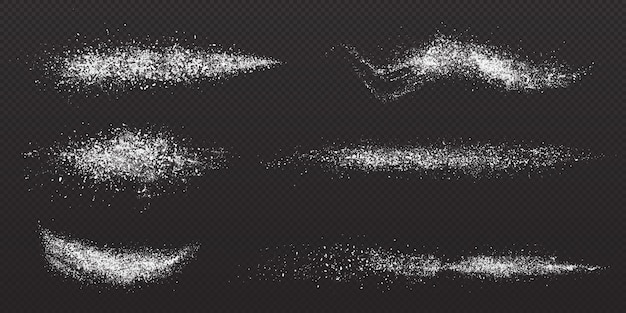The Top 5 Reasons Women Need Iodine
Ensures a Healthy Pregnancy for Both Mother and Fetus
Iodine is crucial for a healthy pregnancy. It supports the development of the baby’s brain, bones, and muscles, and ensures the mother remains healthy throughout the pregnancy.
Adds to the Nutritional Value of Breast Milk
Breast milk enriched with iodine significantly benefits an infant’s brain, bone, and muscle development, making it an essential nutrient for breastfeeding mothers.
Necessary for Overall Breast Health
Iodine plays a vital role in maintaining breast health. It helps regulate estrogen levels in breast tissue, reducing the risk of developing fibrocystic disease and other breast-related issues.
Nutritionally Supports the Thyroid and Metabolism
The thyroid gland relies on iodine to produce hormones that regulate metabolism. Adequate iodine intake ensures the thyroid functions properly, supporting overall metabolic health.
Required for the Ovaries to Produce Estrogen and Progesterone
Iodine is essential for the ovaries to produce the hormones estrogen and progesterone, which are crucial for reproductive health and hormonal balance.
How Much Iodine Do Women Need?
A woman’s iodine needs vary depending on whether she is pregnant or breastfeeding. The Recommended Dietary Allowance (RDA) for iodine in adult women is 150 mcg, the same as for men. However, during pregnancy, women need 220-250 mcg, and while breastfeeding, the requirement increases to 250-290 mcg. This ensures the infant receives adequate iodine for proper development.
Life Stage Dosage
– 18+: 150 mcg
– Pregnant or Lactating Women: 220-250 mcg
– Breastfeeding Women: 250-290 mcg
– Infants birth-6 months: 110 mcg (if not breastfeeding)
– Infants 7-12 months: 130 mcg (if not breastfeeding)
Iodine & Women’s Hormonal Health
A woman’s hormonal health is closely linked to her thyroid and reproductive organs. The ovaries require almost as much iodine as the thyroid, making iodine essential for overall hormonal balance. The ovaries produce estrogen and progesterone, crucial for menstruation, fertility, and pregnancy. An iodine deficiency can disrupt hormone production, leading to conditions like estrogen dominance, which can cause symptoms such as breast tenderness and heavy periods. Adequate iodine intake can help maintain hormonal balance and support a healthy menstrual cycle.
Iodine, Ovarian Health, & PCOS
Polycystic Ovary Syndrome (PCOS) is a common disorder where multiple cysts form on the ovaries, often linked to iodine deficiency. These cysts can cause hormonal imbalances, affecting menstruation and fertility. PCOS is more prevalent in overweight individuals, and weight loss can help reduce symptoms. Untreated PCOS can lead to other health issues like heart disease and diabetes.
Iodine & Breast Health
Breast tissue requires iodine to maintain health. A deficiency can lead to increased estrogen levels, causing microcysts and potentially fibrocystic disease. While there’s no direct evidence that iodine reduces breast cancer risk, studies suggest lower breast cancer rates in cultures with high iodine intake, indicating its potential as a powerful antioxidant.
Iodine Deficiency & Pregnancy
Iodine deficiency during pregnancy can lead to serious issues like lower IQ and developmental delays in the baby. It’s crucial for pregnant and breastfeeding women to maintain adequate iodine levels to support the baby’s thyroid development, which is essential for bone, muscle, and brain function.
Iodine Nutrition for Breastfeeding
Breast milk is the best food for babies, but it needs to be nutritionally rich. Adequate iodine in breast milk ensures optimal thyroid hormone storage and supports brain and neurological development in infants. The recommended iodine intake for lactating mothers is 250 mcg.
Iodine & Menopause
During menopause, estrogen production declines, leading to symptoms like hot flashes and osteoporosis. Iodine supplementation can help maintain hormone levels naturally, potentially reducing the need for estrogen replacement therapy, which has been linked to adverse health conditions.
Iodine & Hair Loss in Women
Thyroid hormones, supported by iodine, are essential for healthy hair, teeth, and bones. An iodine deficiency can lead to hair loss, especially after pregnancy and menopause. Studies have shown that iodine-rich diets can improve hair quality and growth.
Is It Possible to Take Too Much Iodine?
Yes, excessive iodine intake can lead to hyperthyroidism, where the thyroid produces too many hormones. Symptoms include mood swings, nervousness, fatigue, and rapid heartbeat. It’s important to balance iodine intake to avoid these issues.
What’s the Best Way to Get Iodine?
Iodine can be obtained from food or supplements. Sea vegetables like kelp, cranberries, organic cheese, yogurt, navy beans, strawberries, and potatoes are excellent sources. Himalayan crystal salt is also a good option. For supplements, nascent iodine, Lugol’s solution, and potassium iodide are effective choices. Nascent iodine is particularly well-absorbed and beneficial for thyroid health.
Iodine Supplementation for Women
Supplementation is a reliable way to ensure adequate iodine levels. High-quality options include nascent iodine, Lugol’s solution, and potassium iodide. These supplements support thyroid health and overall well-being. For a premium option, consider Detoxadine, a deep-earth sourced nascent iodine supplement that supports thyroid health and the immune system.



